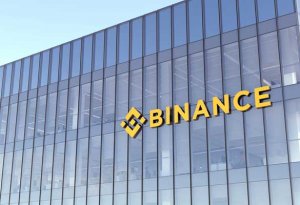A very detailed look at the FX industry in China’s all important Tier 2 towns: FinanceFeeds to report from Guangzhou this week
On May 12 and 13, FinanceFeeds will report live from Guangzhou, China, on all important aspects of what is important when dealing with the 100,000 lot per month, $300 million asset under management IBs in the second tier development towns, and will work closely on how Western firms can work with the most profitable businesses in the retail FX industry

Many FX dealers dream of finding just one IB which manages client funds with such vigor that 40,000 lots per month are traded.
However, in the second tier Chinese development town of Zhengzhou, a city of 10 million people in the Henan province, approximately 5 large introducing brokers are referring business to large FX brokerages overseas.
The level of business being conducted there is somewhat different.
Zhengzhou is a one and a half hour flight from Shanghai, and is a burgeoning financial center, as well as being the provincial capital. Its location is indeed prime for IBs wishing to tap into the young ‘new money’ in the province, of which there is a tremendous amount, however western brokers wishing to approach these established IBs in this region should bear in mind a few caveats.
Meeting with several very young CEOs of introducing brokerages which provide direct retail business to large FX industry mainstays including Saxo Bank, GAIN Capital, GKFX and Blackwell Global but also, rather unusually, have their own dealing platforms for retail customers in addition, FinanceFeeds has noted that once a deal is cemented and the infrastructure is in place and has been proven to be accepted as reliable by the IB in terms of being able to process client payments to send funds directly to the broker (ie getting the money out of China directly to a brokerage’s client funds account), a very strong income stream per IB is a prime factor.
For many of the young Chinese CEOs, $300 million in assets under management is not uncommon.
Many end users do not know or have any regard as to which brokerage is actually providing the FX dealing service, which execution model is being used, or where the payment gateway is sending their funds, as they are totally reliant on the IB for all customer facing and trading matters.
For this reason, China’s enormous and largely misunderstood FX industry is highly developed in the Tier 2 towns across the provinces, and FinanceFeeds has committed substantial resources toward investigating its modus operandi on a cellular scale over the past few years, spending significant time within the offices of large FX brokerages, portfolio managers, technology providers and introducers of large scale business across the entire country.
This week, in the advent of the imminent launch of a Chinese version of FinanceFeeds, hosted from within China and fully compatible with the networks used on WeChat and Baidu by Chinese institutional and retail firms, FinanceFeeds will be reporting live from Guangzhou, during a two day conference that is being hosted in conjunction with FXword.

Guangzhou, which is just a 45 minute train journey from Shenzhen – yes, 200km in 45 minutes is possible on China’s CRH high speed trains – and is one of two major Tier 2 towns in the southern Guangdong province, the other being Shenzhen itself.
Both Shenzhen and Guangzhou are FX industry mainstays, demonstrating that firms should widen their focus away from Shanghai and investigate the lucrative business in the provinces, which, due to the large population of young and wealthy traders whose property empires reaching into the tens of millions generate a rental revenue per month which is then traded on FX by large scale IBs and portfolio managers to create greater return as property is considered a long term investment, and Chinese business methodology is to use the rental income from long term investments to gain via short term investments whilst not touching their capital base.
Taking place on May 12 and 13 in the banqueting at the Sofitel Guangzhou Sunrich Hotel, the two day event will focus on China’s vast B2B FX industry.
Attended by Chinese firms as well as the Chinese divisions of Western companies, there will be discussions during the course of both days, and keynote speeches which include looking at the effectiveness of automated FX trading via mirror platforms (almost ALL trading in China is automated or via MAM accounts), further debates on the Chinese FX industry’s development model and what has been achieved thus far, and how to hedge against any consequences of RMB depreciation.
Speakers will be:
Larry Williams, the founder of Williams %R, is the champion of The World Cup of Futures Trading held by Robbins Trading Company. And he is one of the most respectable investment advisers since the end of 1960s.
Yingzi Cai, who started her career in stock market from 1992. She engaged in securities analysis as one of the commentators of the first stock generation a year later. She worked as an editor for Investment Express and after 1995 and was named the outstanding writer of investment express.
Daryl Guppy, who is an Australian financial columnist and author of books on stock market trading techniques. He has spoken at conferences and appeared on finance television programs. He invented Guppy Multiple Moving Averages (GMMA), which is included in the MetaStock and other charting programs. He writes weekly columns for The Edge, China Daily and Shanghai Security News and a CNBC.com column – Charting Asia. He appears frequently on CNBC Asia.
In terms of industry landscape, Guangzhou is similar to nearby Shenzhen, which is home to approximately 12 large introducing brokers, some of which perform the role of solely sending funds directly to overseas FX companies, and others which also manage client portfolios. Additionally, there is a network of permanently employed, salaried sales managers who operate in a similar vane to an IB but are direct employees of overseas firms.
Interestingly, there is a growing number of English-speaking salaried staff working for British and Cypriot retail FX companies in Shenzhen. They are paid between 9,000 to 10,000 RMB (approximately $1,418 to $1,576) per month as a base salary, and then earn a lot-based commission of between 50 cents and 75 cents per lot depending on the company, which equates to $5 to $7.50 per million on a lot size of $100,000.
It is also not uncommon for an IB to be trading around 100,000 lots per month.
Today’s Chinese retail FX trader is astute, often extremely well-heeled, and in many cases, especially in second tier development towns such as Shenzhen and Guangzhou, has multi-million dollar commercial real estate ventures and vast derivatives portfolios being funded by the monthly profit from lease agreements on vast illiquid assets such as mutli-storey apartment towers or shopping and leisure complexes.
As all FX business is conducted on a B2B basis in China, due largely to the reliance on IBs rather than brokerages taking direct clients, this will be a valuable two days of industry discussion and gathering of vital information from within one of the world’s most important centers for retail FX.
China may well indeed be a land of opportunity, however its internet is domestic, its payment solutions systems and banking infrastructure is domestic, and the entire environment in which the country which powers the entire world’s industrial, commercial, intellectual and financial world is impenetrable to the outside world, and vice versa.
This has made China, in the eyes of western brokerages, relatively akin to an oasis in a huge desert which, after massive effort has been made without resources to approach it, turns out to be a mirage.
As a result, many brokerages which have managed to forge some relationship with Chinese IBs or via media campaigns that have been small enough to not be of consequence to the all-seeing eye that is the Chinese firewall, have rested on their laurels and let this continue.
Until now…
At the end of last year, SAFE, the Chinese FX industry regulator, which is owned by the People’s Bank of China, which in turn is owned by the Chinese government, made new rulings that any customer wishing to transfer money abroad to a non-Chinese individual or business, will have to declare what the funds are for, and if they are for derivatives or securities trading, they will not be transferred, as this is one of the categories that the Chinese government has banned for transferring funds abroad.

Thus, for small brokerages with no presence in China, that is the end of their ability to operate omnibus accounts with all-important IBs, and it is also the end of the ROI (return on investment) for any media having been purchased on Chinese sites by such firms, as they will be unable to attract an audience that can transfer their funds into a trading account overseas.
FinanceFeeds CEO Andrew Saks-McLeod took the conversation in this direction when presenting to 250 senior Chinese FX industry executives in Shanghai in January, stating “For brokerages, technology providers and integration firms that make up the entire infrastructural architecture of the retail trading environment, only those with actual presence in mainland China, with physical offices, hosting, and a Chinese website based in China which is connected to Chinese payment facilities and has partial Chinese ownership or a joint venture agreement in place will be able to conduct their business with Chinese retail customers and IBs in future.”
“We are speaking about the new ways that media in China will have to be used in order to attract and maintain a sustainable client base as well as organically grow any business, and from my research, the only method now is to concentrate on media campaigns that are based in China, originate from Chinese entities – meaning Chinese hosted and partially owned subsidiaries of Western brokerages or technology firms, and not to make any media campaigns that focus on China, from outside China” – Andrew Saks-McLeod, CEO, FinanceFeeds
This has given rise to the necessity for yet more face-to-face interaction, which is vital in order to secure that all important B2B deal in China.
FinanceFeeds will report live on May 12 and 13 from Guangzhou, China.









